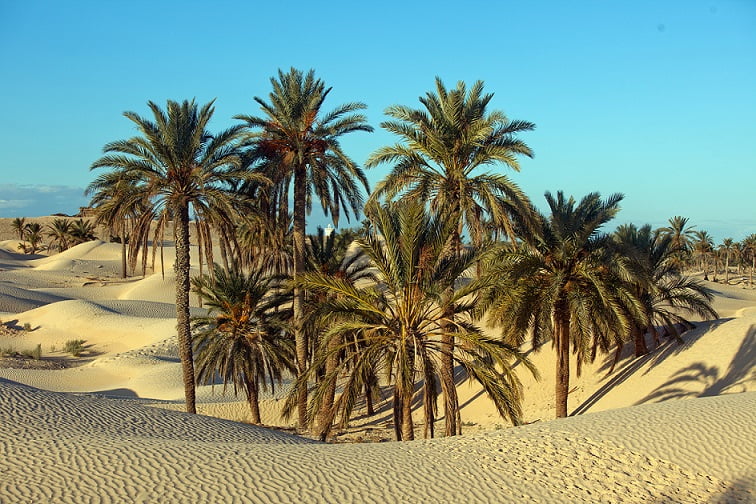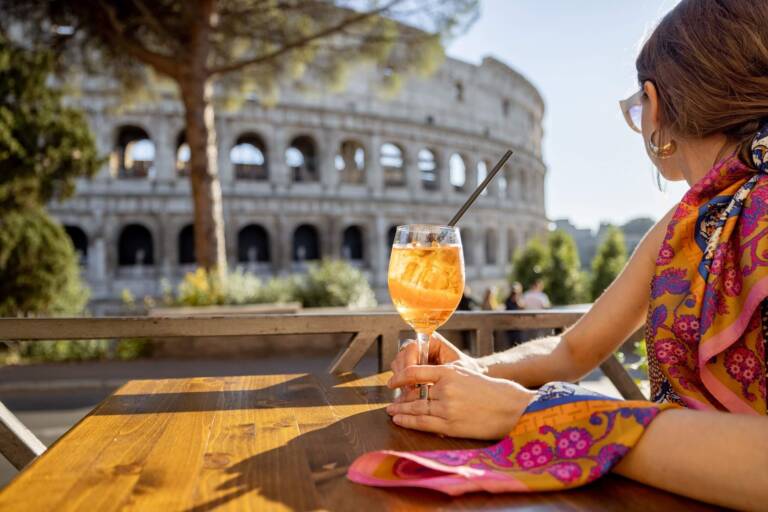10 TIPS FOR YOUR TRIP TO TUNISIA
Is your trip to Tunisia approaching and are you a little lost? Here we leave you our tips so that you only worry about enjoying yourself. Pack your bags and head to this country of cultures, history and traditions!
Language
The official language of Tunisia is Arabic. French, English, Italian and German are frequently spoken. And with a little luck, Tunisians will also speak some Spanish!
Visas
Spaniards do not need a visa to enter. The only thing you need is the passport (with a minimum validity of three months counting from the entry). Minors must travel with parental authorization if they are not accompanied by parents.
Ksar-Photos provided by the Tunisian Tourist Office
Security
We advise you before making your trip to leave your information in the Traveler Registry of the Ministry of Foreign Affairs and Cooperation. Additionally, this organization guides you on what to do in an emergency or how the consulates can help you.
For any questions, doubts or unforeseen events, the Spanish Embassy in Tunisia remains open from Monday to Friday from 8:00 a.m. to 1:00 p.m. and is located at:
22 and 24, Avenue Ernest Conseil. Cité Jardin. 1002,Tunis.
Vaccines
There is no strictly mandatory vaccination to enter Tunisia. For more information on health issues, we advise you to visit the website of the Ministry of Health.

Tozeur-Photos provided by the Tunisian Tourist Office
Money
Tunisia's own currency is Tunisian Dinar. One Tunisian Dinar is equivalent to 0.46 euros. From Spain it is advisable to bring euros since the exchange can be made in hotels and the airport in Tunisia without problem. International credit cards are accepted Visa, American Express, Eurocard and Mastercard.
You can convert any excess Tunisian dinars into foreign currency by presenting the exchange receipt as long as the amount does not exceed 1,000 dinars.
In the event that the amount does exceed that amount, a customs declaration must be submitted (preferably made to the customs services upon entering the country) to be able to reconvert the dinars when leaving Tunisia.
We therefore advise you to make the change little by little at the hotels and even the airport and not from Spain, since you would lose money when changing.
It is customary to leave a tip of a 10-15 %, although there is no fixed standard. He bargaining It is a tradition in Tunisia, although for this you will have to be patient since it is not as easy as it seems.
Time
The best season to visit Tunisia is in spring (starting mid-April) and the autumn (from September). However, at the end of February/beginning of March the temperature is very pleasant and Tunisia could be the perfect destination for your final year trip. The water temperature varies between 10 and 15 degrees in winter and in summer it can reach 23°C. The temperature of the interior and the south in the summer months is very high, so in May and June we recommend going to the coast since the weather is exceptional and you can enjoy the beach with everything included.
Displacements
Taxis and buses abound in the city of Tunis, although you can also take the metro or the train. The cheapest way to get around is by bus. The bus network connects all cities and is the cheapest and most practical means of transport. Another option is the collective taxi which can be rented for up to nine people and is also cheap. Rent a car In Tunisia it costs around 100 dinars per day with unlimited mileage. We advise you to take out insurance and check the age of the car. To drive around the city it is enough to have a French driving license and a passport. In train You can also travel around Tunisia. The SNCFT railway network has more than 2000 km of railway tracks that serve the main tourist cities.
Gastronomy
You cannot return from Tunisia without trying the couscous, their signature dish made with lamb, chicken or fish. He “melloukiah”,meat-based dish, tagines, meat and vegetable pies baked in the oven with egg and cheese and “bricks”, a typical Tunisian starter, they will surprise you as well as their honey-based pastries. “Makrouds”, “samsas”, “baklavas”, “gharaibas” They are the best representatives of Tunisian pastries and usually contain dried fruits. And to drink mint tea and Moorish coffee with a few drops of orange blossom water, they are the best option.
If you feel hungry we have the best restaurant recommendations
Shopping and souvenirs
An important part of traveling is shopping for souvenirs. Our recommendations are varied and range from Hookahs or shishas in Tunisia capital, Ceramics in Nabeul, Leather articles in Monastir and Sousse, Rugs and tapestries in Kairouan, Silver and gold jewelry in Tunisia capital, Sfax and Djerba, Dates in Tozeur, desert roses in the southern zone, Perfumes and essences, Objects carved in olive wood, Copper or brass trays, vessels and teapots until spices.
Other practical matters
The Tunisia Tourist Office It is open from 8:15 a.m. to 1:00 p.m. and from 2:30 p.m. to 5:00 p.m. from Monday to Thursday. On Fridays and Saturdays they are only open from 8:30 a.m. to 1:30 p.m.
- The electrical network is 220W and the plugs have two pins according to the European standard.
- To call Tunisia from Spain it is necessary to dial the 00 + 216 (country prefix) + city prefix.
-71 for Tunisia
-72 for Hammamet, Nabeul and Bizerte,
-73 for Monastir, Susa and Mahdia,
-75 for Gabès, Djerba and Zarzis,
-76 for Tozeur, Nefta and Douze
-78 for Tabarka
followed by the corresponding number.
- To call from Spain to Tunisia you must dial 00 + 34
- The entry of liquor, alcohol, colognes, perfumes, tobacco, etc. It is subject to the customs regulations in force in most of the country (the current maximum quota is 2 liters of alcoholic beverages + 1 carton of tobacco).
If you have any questions or are interested in traveling to Tunisia contact with us for whatever is needed. Have a good trip!

